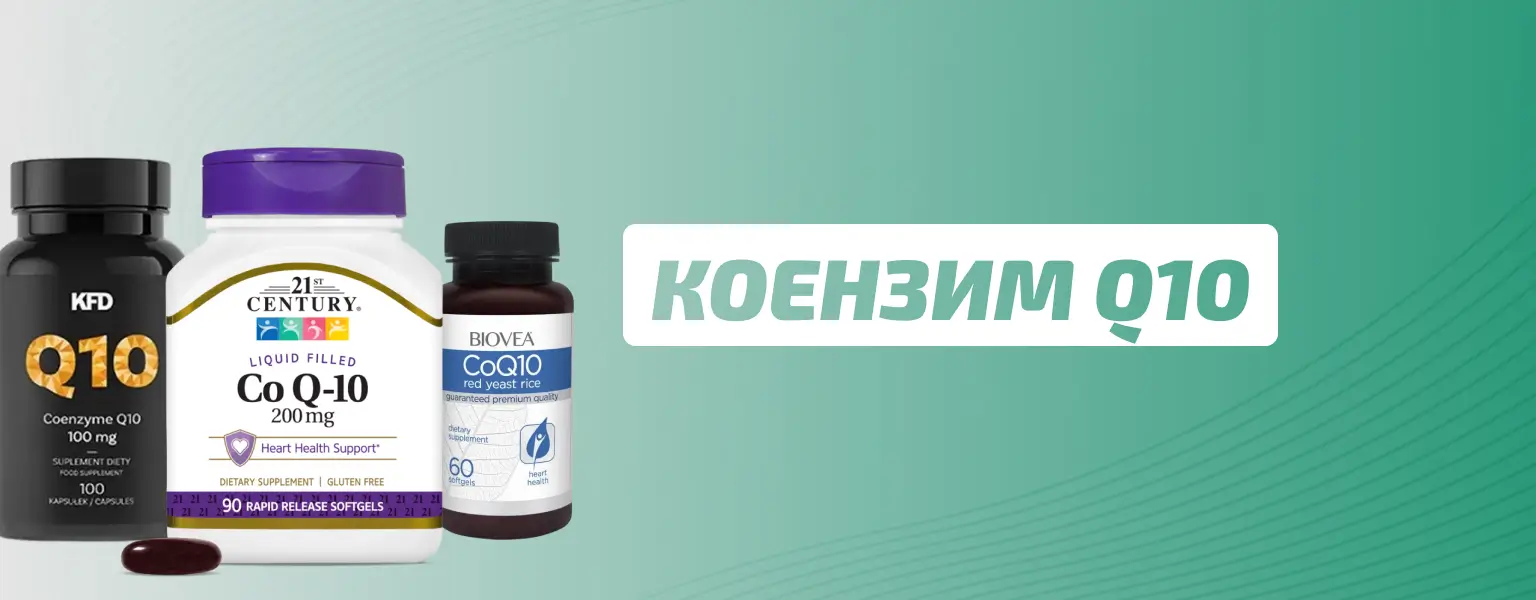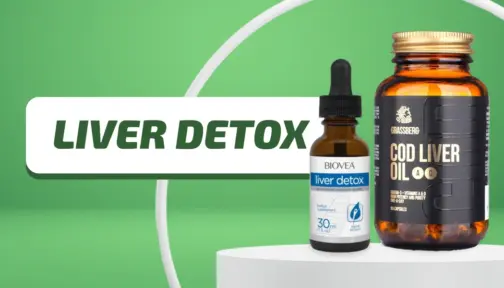Coenzyme Q10 (CoQ10) is a natural compound that is involved in the production of energy in every cell of the human body. This coenzyme also acts as a powerful antioxidant, protecting cells from damage caused by free radicals. The presence of Q10 supports the functions of the heart, brain and muscles, playing a key role in maintaining general health and slowing down the aging process.
Coenzyme Q10 – benefits proven by research
Coenzyme Q10 is one of the most well-studied nutritional supplements. Numerous clinical studies support its effectiveness for various conditions and systems in the body. Here are some of the proven benefits:
- Improving heart function – especially in heart failure, confirmed by a number of clinical studies.
- Lowering blood pressure – it has been found that CoQ10 can moderately lower blood pressure.
- Increasing energy and endurance – thanks to its role in mitochondrial energy production.
- Reducing migraine headaches – proven by controlled studies, especially when taken prophylactically.
- Type 2 diabetes support – improves insulin sensitivity and glycemic control.
Benefits we are still exploring
Although coenzyme Q10 has many established uses, scientists continue to explore its potential for other conditions. Some of these benefits are supported by preliminary results but have not yet been definitively proven.
- Slowing down skin aging – positive effects on skin elasticity and structure have been observed, but long-term studies are needed.
- Support for neurodegenerative diseases – such as Parkinson's and Alzheimer's disease. There are preliminary results in this area, but no definitive evidence.
- Improving male fertility – possible improvement in sperm motility and count, but results in studies vary.
- Improving sports performance – there are observations of increased endurance, but at this stage they are not unambiguous.
- Liver and kidney protection – coenzyme Q10 shows potential in certain models, but is not an established therapeutic practice.
Bonus: 2 Myths About Coenzyme Q10 We Need to Stop Believing
- Coenzyme Q10 works immediately – in reality, the effect develops over time.
- Only adults need it – deficiency can also occur in young people, especially during intense physical exertion or illness.
Coenzyme Q10 – recommended dosage and instructions for use
The optimal dose of coenzyme Q10 varies according to individual needs. For general prevention, 30–100 mg per day is recommended, while for specific conditions such as heart failure or migraines, the dose can reach 200–300 mg per day.
It is taken with a meal rich in fat for better absorption. The effect is not immediate – it takes 4 to 12 weeks to achieve results. When combining with medications, especially those for blood pressure or blood thinning, it is recommended to consult a doctor.
Supplements or natural coenzyme Q10?
Coenzyme Q10 is found naturally in foods such as liver, sardines, mackerel, beef, spinach, broccoli, and nuts. However, the amount of CoQ10 in food is limited and difficult to meet therapeutic needs.
Coenzyme Q10 supplements offer a standardized dose and higher bioavailability, especially when they are in softened capsules with a fat carrier or in soluble form, thus aiding its absorption in the digestive tract.
Unlike natural sources, where the concentration is low and varies, supplements provide a constant and controlled amount, which is crucial for therapeutic use.
Coenzyme Q10 supplements are particularly useful in cases of increased energy needs, chronic diseases (such as heart failure, diabetes or fibromyalgia), as well as in old age, when the body's natural production of Q10 begins to decline significantly. In addition, some medications (such as statins) further deplete its levels, making supplements a necessary form of compensation.
Coenzyme Q10 – benefits and harms?
Coenzyme Q10 is one of the safest dietary supplements, and is generally well tolerated even with prolonged use. However, in some cases, especially after taking higher doses, mild side effects such as stomach discomfort, nausea, diarrhea, heartburn, or insomnia may occur. These reactions usually disappear when the dose is reduced or when taken with food.
There are also possible interactions with certain medications, such as anticoagulants (e.g. warfarin), blood pressure medications, or statins, which can affect CoQ10 levels in the body.
Therefore, in case of chronic diseases or combination therapy, it is highly recommended to take the supplement under medical supervision to avoid potential risks and ensure safety.
Energy for cells, support for the body
Coenzyme Q10 is essential for the proper functioning of cells and their effective protection against oxidative stress. Whether taken with food or in supplement form, this coenzyme plays an important role in heart health, energy and general well-being. MaxLife offers you a diverse catalog with dietary supplements with coenzyme Q10 – specialized products and combined formulas for your individual needs.


 0878 567 491
0878 567 491






